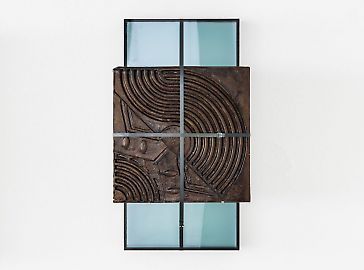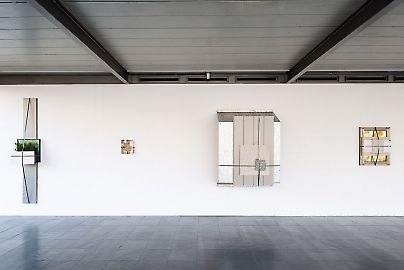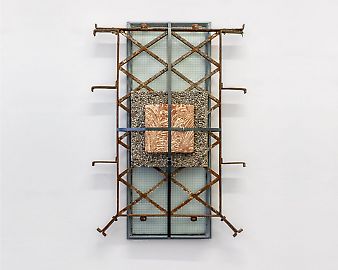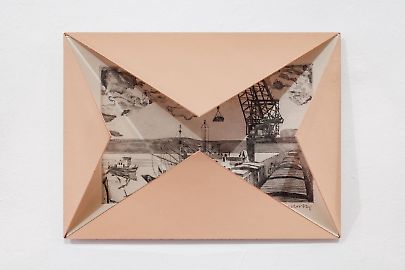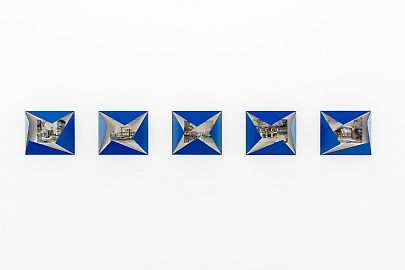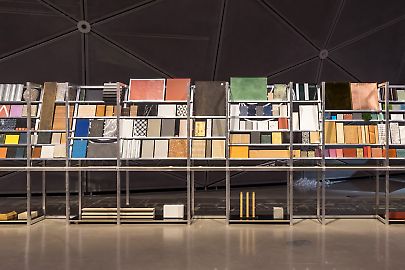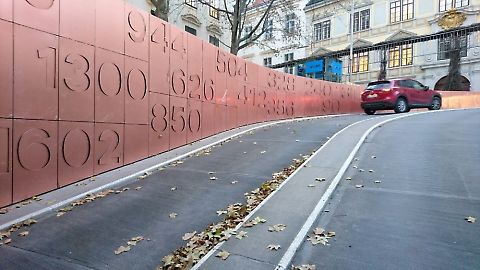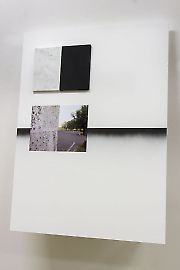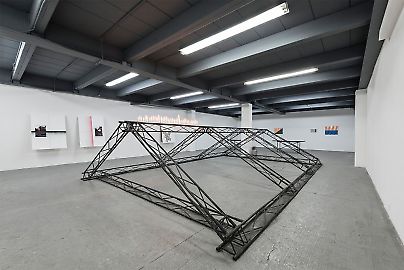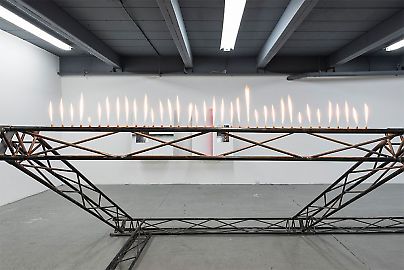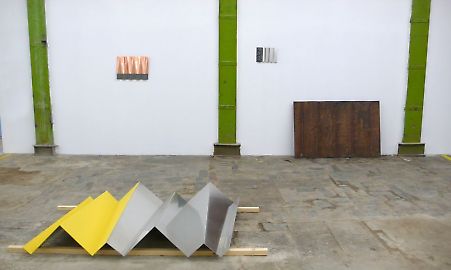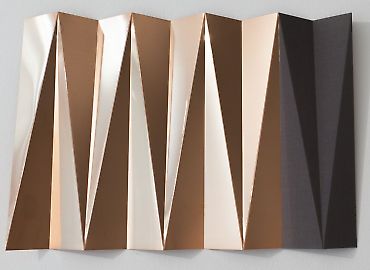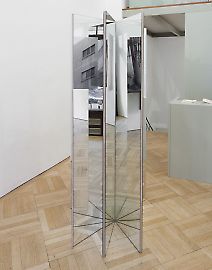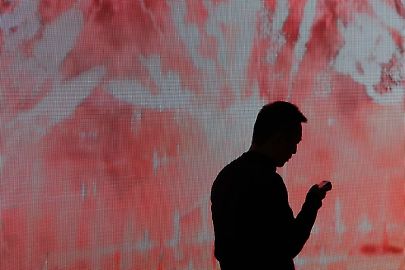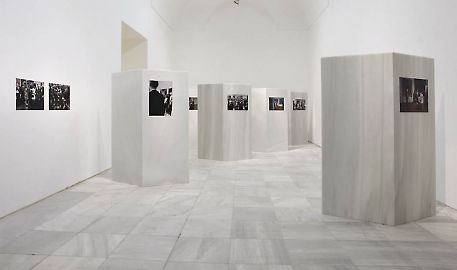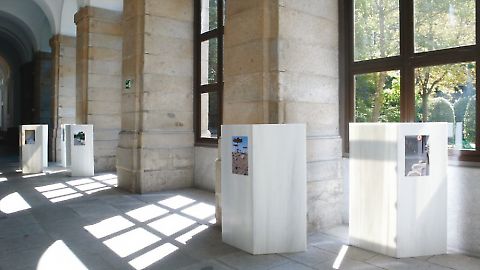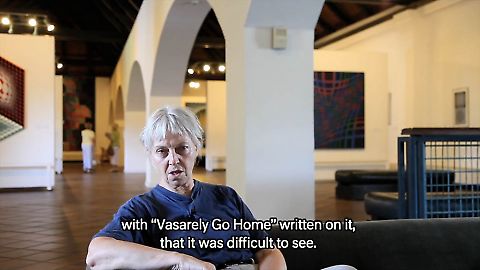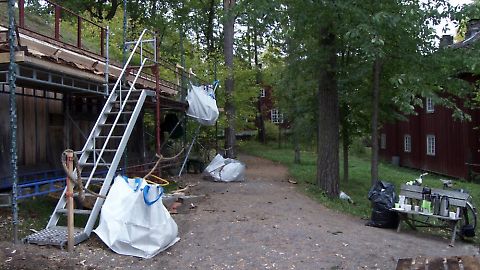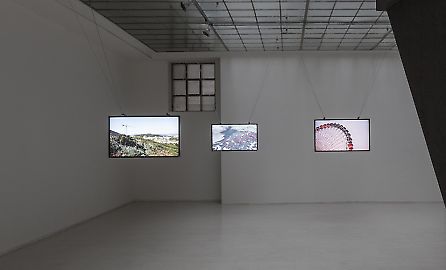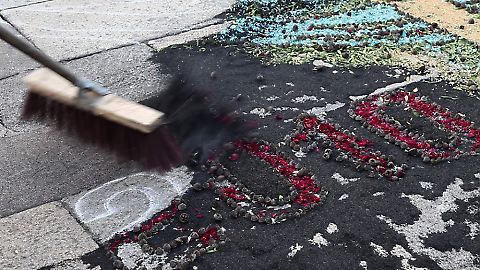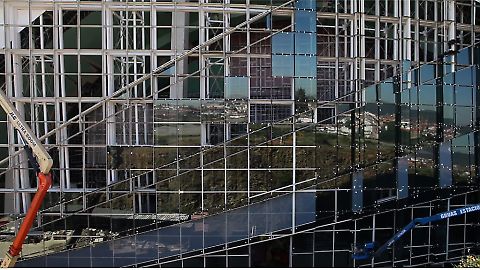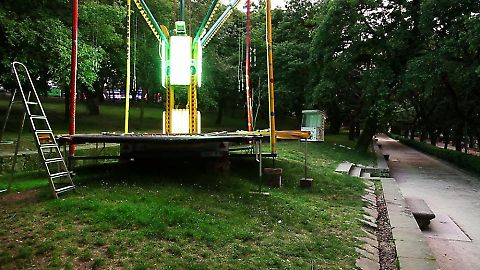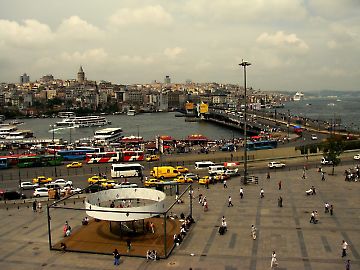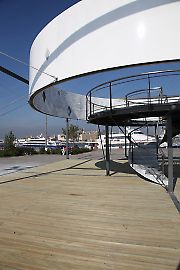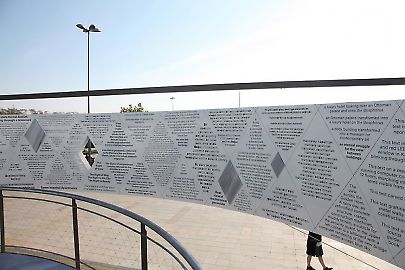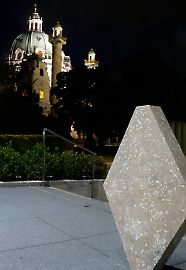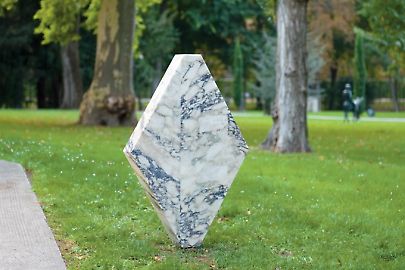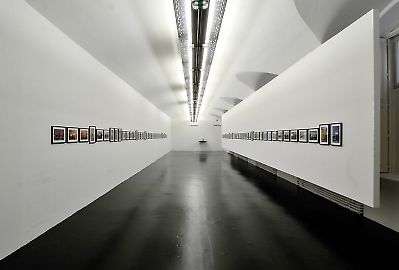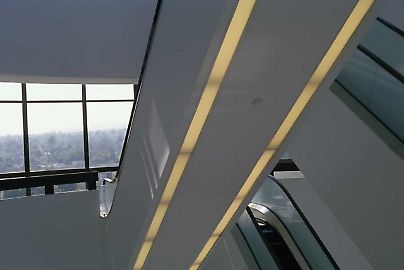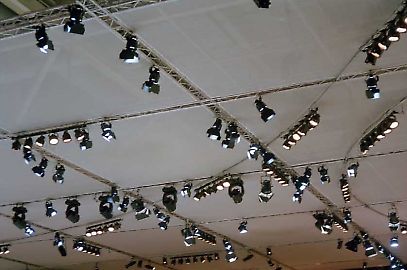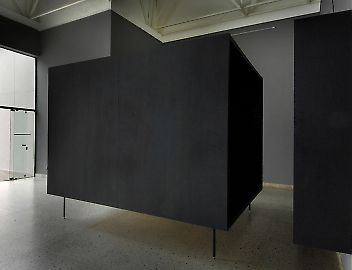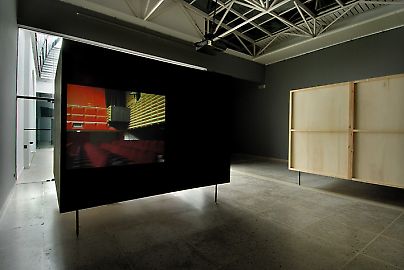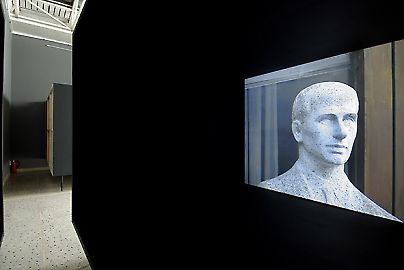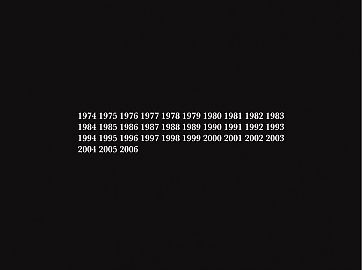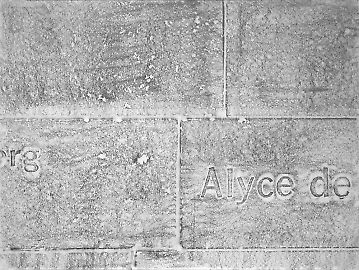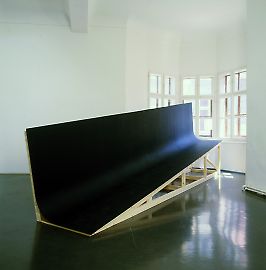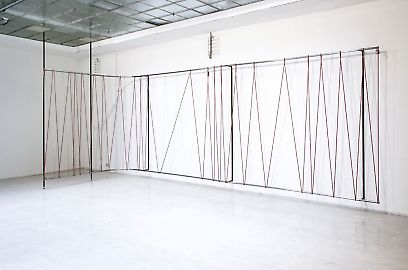Andreas Fogarasi
Vasarely Go Home, 2011
6 marble structures with photos, ca. 148,5 x 110 x 36 cm each, 7 photos on the wall, ca. 30 x 45 cm each
Installation view Espacio Uno, Museo Reina Sofia
La Ciudad de Color, 2011
7 marble structures with photos
ca. 148,5 x 110 x 36 cm each
Installation view, ground floor corridor, Museo Reina Sofia
Andreas Fogarasi (*1977, Vienna) is through his installations, sculptures, videos and photographs concerned with the act of showing and of representation. He analyses how places, cities, political ideas, or historic events become images and questions the role of culture – art, architecture, and design – in this process. Underlying his works is his critical examination of the mechanisms with which political appropriation operates in the field of visual culture today: the process of culturalisation of the economy – be it through „creative“ models of working and remuneration, through culture being the motor behind urban reconstruction, or as a factor in the competition for attracting tourists, investors, and media attention.
Formally informed by Minimal Art and Conceptual Art, Fogarasi’s works are at the same time documentary and autonomous sculptures. The documentary element is consciously fractured and rests on a precise balance between information and openness. The sculptural aspect is strongly architectural, often referencing iconic landmarks, commercial presentations or temporary forms of architecture such as stands at fairs, stage constructions, or pavilions.
Andreas Fogarasi was recently awarded the renowned Otto Mauer Prize (2016) and in 2007 the Golden Lion for his exhibition in the Hungarian Pavilion at the 52nd Venice Biennale. His work was represented in numerous exhibitions internationally, solo exhibitions include: City Gallery, Bratislava, Georg Kargl Fine Arts, Vienna (2017), Proyectos Monclova, Mexico City (2016), MAK Center for Art and Architecture (with Oscar Tuazon), Los Angeles (2014), Galerie fuer Zeitgenoessische Kunst, Leipzig, Museum Haus Konstruktiv, Zurich (2014), Georg Kargl Permanent, Vienna (2013), Prefix Institute of Contemporary Art, Toronto (2012), Museo Reina Sofia, Madrid, CAAC, Sevilla (2011), Ludwig Forum, Aachen (2010), MAK, Vienna, Ernst Múzeum, Budapest, Grazer Kunstverein, Graz (2008), Georg Kargl BOX, Vienna (2006).


